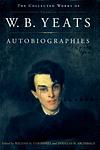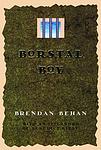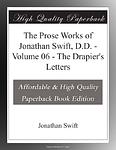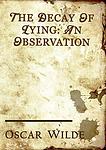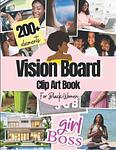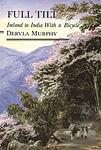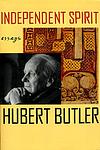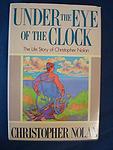The Greatest Dutch, Irish "Nonfiction" Books of All Time
Click to learn how this list is calculated.
This list represents a comprehensive and trusted collection of the greatest books. Developed through a specialized algorithm, it brings together 300 'best of' book lists to form a definitive guide to the world's most acclaimed books. For those interested in how these books are chosen, additional details can be found on the rankings page.
Genres
Countries
Date Range
Reading Statistics
Click the button below to see how many of these books you've read!
Download
If you're interested in downloading this list as a CSV file for use in a spreadsheet application, you can easily do so by clicking the button below. Please note that to ensure a manageable file size and faster download, the CSV will include details for only the first 500 books.
Download-
1. The Diary of a Young Girl by Anne Frank
This book is a real-life account of a young Jewish girl hiding from the Nazis during World War II, written in diary format. The girl and her family are forced to live in a secret annex in Amsterdam for two years, during which she writes about her experiences, fears, dreams, and the onset of adolescence. The diary provides a poignant and deeply personal insight into the horrors of the Holocaust, making it a powerful testament to the human spirit.
-
2. The Praise of Folly by Erasmus
This satirical work is a critique of the practices of the Church and the wider social behavior of the time. Narrated by Folly, the female personification of foolishness, the book humorously criticizes various aspects of society such as superstitious religious practices, scholarly pedantry, and the excesses of the upper classes. The book is a bold critique of its time, using humor and irony to expose the follies of its society.
-
3. The Waning of the Middle Ages by Johan Huizinga
"The Waning of the Middle Ages" is a historical analysis of the cultural life of the late Middle Ages, particularly in France and the Low Countries, during the 14th and 15th centuries. It delves into the period's modes of thought, forms of expression, religious beliefs, and social norms. The book argues that the era was characterized by a highly stylized and overwrought civilization, marked by an excessive emphasis on chivalry and courtly love, a religious mindset dominated by the fear of death and the afterlife, and a cultural milieu that was both highly imaginative and deeply pessimistic.
-
4. Ethics by Baruch de Spinoza
"Ethics" is a philosophical work that explores complex ideas about God, the universe, human emotions, and the path to enlightenment. The book outlines a metaphysical, epistemological, and ethical system in which God and the universe are one and the same, rejecting traditional notions of a personal deity and asserting that understanding the natural world leads to peace of mind and happiness. The work delves into the nature of the human mind and its emotions, advocating for the pursuit of reason and knowledge to achieve a calm, enlightened state.
-
5. Autobiographies by William Butler Yeats
This book is a collection of autobiographical essays by a renowned Irish poet and playwright, reflecting on his personal and professional life. It provides a deep insight into his early life, family, influences, and the evolution of his poetic and dramatic works. The author also gives a vivid account of the Irish literary scene and the cultural and political climate of his time, including his involvement in the Irish National Theatre and the Irish Literary Society.
-
6. Borstal Boy by Brendan Behan
"Borstal Boy" is a semi-autobiographical novel that depicts the author's experiences in a British juvenile detention center, or borstal, during World War II. The young protagonist is arrested in Liverpool for his involvement with the Irish Republican Army and is sent to borstal where he spends his formative years. The narrative explores themes of patriotism, identity, and the complexities of adolescence, presenting a raw and compelling portrayal of life in detention and the relationships formed there.
-
7. A Treatise Concerning the Principles of Human Knowledge by George Berkeley
This philosophical work challenges the idea of materialism, arguing that objects only exist as a perception of the mind. The author asserts that we can only directly know sensations and ideas of objects, not the objects themselves. He also discusses the role of God, suggesting that our perceptions are dependent on the will of a higher power. The text is a significant contribution to the field of metaphysics and epistemology, offering a unique perspective on the nature of human knowledge and perception.
-
8. The Letters Of Vincent Van Gogh by Vincent van Gogh
"The Letters of Vincent van Gogh" is a compilation of correspondence that provides a deep and personal insight into the mind of one of the world's most famous and influential painters. Through these letters, primarily written to his brother Theo, the reader gains an intimate understanding of Van Gogh's thoughts on art, his emotional struggles, his aspirations, and the profound relationships he maintained throughout his turbulent life. The collection not only sheds light on his creative process but also reveals his reflections on existence, his financial difficulties, and his relentless pursuit of his artistic vision, offering a poignant look at his world from his own perspective.
-
9. Homo Ludens: A Study of the Play-Element in Culture by Johan Huizinga
"Homo Ludens: A Study of the Play-Element in Culture" is a comprehensive exploration of the significance of play in human culture. The author argues that play is not just a childhood activity but a crucial component of societal development and cultural evolution. He delves into various aspects of culture such as law, war, knowledge, poetry, and philosophy, demonstrating how each has been influenced by elements of play. The author's thesis is that understanding the role of play in our culture is essential to understanding human nature itself.
-
10. Infidel by Ayaan Hirsi Ali
The book is a powerful memoir of a woman who was born into a traditional Muslim family in Somalia. She recounts her experiences of growing up in a strict Islamic culture, female genital mutilation, civil war, fleeing to the Netherlands as a refugee, and her eventual rejection of her faith after witnessing its violent and oppressive nature. The book also follows her journey into politics and advocacy for women's rights and her efforts to reform Islam. It's a tale of courage, resilience, and the quest for freedom and truth.
-
11. Selected Stories by William Trevor
"Selected Stories" is a collection of short stories by acclaimed author William Trevor. The book features some of Trevor's most memorable and haunting tales, exploring themes of love, loss, and the complexities of human relationships. With his signature style of understated elegance and quiet, observant prose, Trevor creates characters that are both ordinary and extraordinary, capturing the subtle nuances of their lives and the emotions that drive them. From the Irish countryside to London's bustling streets, these stories offer a glimpse into the human experience and the ways in which we navigate the world around us.
-
12. We Don’t Know Ourselves by Fintan O'Toole
"We Don't Know Ourselves" by Fintan O'Toole is a collection of essays that explores the current state of Ireland and its people. O'Toole argues that Ireland's sense of identity has been shaped by its history of colonization and the struggle for independence, but that this identity is now being challenged by globalization and the changing social and economic landscape. He examines issues such as immigration, the Catholic Church's declining influence, and the rise of nationalism, and ultimately argues that Ireland needs to embrace a new sense of identity that is inclusive and forward-thinking.
-
13. A Fanatic Heart by Edna O'Brien
"A Fanatic Heart" is a collection of short stories that delve into the complexities of human emotions and relationships, often set against the backdrop of Ireland's lush landscapes and social upheavals. The narratives explore themes of love, betrayal, and the struggles of the human spirit through a variety of characters, from young girls to aging men, each grappling with their own desires, regrets, and search for meaning. The author's lyrical prose and keen insight into the intricacies of the heart and society weave together tales that are both poignant and revealing, offering a window into the soul of her characters and the cultural tensions of the time.
-
14. The Prose Works Of Jonathan Swift by Jonathan Swift
This collection of writings by a prominent 18th-century satirist and essayist offers a diverse range of his non-poetic works, including political pamphlets, essays, and correspondence. The compilation showcases the author's sharp wit, profound disdain for contemporary society and politics, and his exceptional ability to use satire as a means of social commentary. Through his prose, the author addresses issues such as the corruption of the British government, the oppression of Ireland, and the follies of human nature, all while displaying his mastery of language and rhetorical skill. This body of work not only provides insight into the author's mind but also reflects the complexities and concerns of the Enlightenment period.
-
15. Essays Of Oscar Wilde by Oscar Wilde
This collection of essays showcases the sharp wit and insightful social commentary of one of the most celebrated writers of the late 19th century. The essays span a range of topics, from art and aesthetics to criticism and personal reflections, all delivered with the author's distinctive blend of eloquence and irony. The author's keen observations on Victorian society, his exploration of beauty and its relation to life, and his thoughts on the role of the artist make this compilation a treasure trove for readers interested in literature, philosophy, and the enduring complexities of human nature.
-
16. A Vision by William Butler Yeats
The book in question is an esoteric exploration of the cyclical nature of history, art, and the human experience, as seen through the lens of the author's unique system of symbolism and mysticism. Drawing upon a wide array of influences, including the occult, astrology, and the author's own imaginative faculties, it presents a complex framework for understanding the interplay of personal and universal forces. The work is divided into sections that delve into philosophical and poetic discussions, offering a vision of reality that is structured around the phases of the moon and characterized by a series of gyres or spirals, representing the evolution and involution of the soul, history, and civilization.
-
17. Major Critical Essays by George Bernard Shaw
This collection of essays showcases the author's incisive wit and profound critical thinking as he delves into a variety of subjects, ranging from the intricacies of Shakespearean drama to the social responsibilities of the artist. The author's articulate and often controversial opinions challenge the status quo and provoke readers to reconsider their preconceptions about literature, theater, and society. His essays are celebrated for their intellectual rigor, humor, and the author's unwavering commitment to social reform, making them an enduring contribution to literary criticism and cultural discourse.
-
18. Poems Of Paul Muldoon by Paul Muldoon
This collection showcases the work of a contemporary poet known for his wit, wordplay, and innovation in form and technique. The poems span a variety of themes, from personal reflection to broader cultural commentary, often with a sense of the historical and mythical interwoven with the everyday. The poet's Irish heritage and experiences inform much of his work, which is characterized by its musicality, linguistic dexterity, and a playful yet profound engagement with language. The collection serves as a testament to the poet's reputation as a master craftsman of verse, capable of both depth and lightness, with a distinctive voice that has influenced modern poetry.
-
19. Full Tilt by Dervla Murphy
"Full Tilt" is a captivating travelogue that documents the author's adventurous bicycle journey from Ireland to India. The journey is filled with diverse landscapes, cultures, and people, as well as several challenges, including harsh weather conditions, illness, and political unrest. The author's resilience, determination, and passion for exploration are evident throughout the book, providing an inspiring and insightful perspective on solo travel and self-discovery.
-
20. The Complete Letters Of Oscar Wilde by Oscar Wilde
This compilation is an exhaustive collection of correspondence penned by one of the most celebrated writers of the Victorian era, known for his wit, eloquence, and flamboyant style. The letters provide an intimate glimpse into the author's life, covering his rise to fame, his relationships, his trials, and his time in prison. They reveal his personal thoughts on art, literature, society, and his own creative process. The collection is not only a treasure trove for literary enthusiasts and scholars but also a poignant, revealing portrait of a complex man who was a central figure in the aesthetic movement of the late 19th century.
-
21. Independent Spirit by Hubert Butler
"Independent Spirit" is a collection of essays that delve into the rich tapestry of European history, politics, and culture through the discerning eyes of an Irish essayist. The book reflects on various topics ranging from the author's experiences in the Balkans to the complex interplay of religion and nationalism in Ireland. With a keen analytical mind and a profound moral sense, the essays explore the importance of maintaining cultural identity and historical awareness in the face of modern challenges, advocating for intellectual independence and the preservation of human rights. The author's eloquent prose and insightful observations make this work a compelling exploration of Europe's past and present.
-
22. Darwin's Dreampond by Tijs Goldschmidt
The book explores the dramatic impact of human intervention on the ecosystems of Lake Victoria, focusing particularly on the cichlid fish species. The author, an evolutionary biologist, recounts his fieldwork in the 1980s, observing firsthand the ecological and evolutionary changes resulting from the introduction of the Nile perch, a predatory fish. This event led to the extinction of numerous cichlid species, which had been remarkably diverse and a key example of adaptive radiation. The narrative combines scientific observation with reflections on the broader implications of biodiversity loss and the complex relationship between humans and the natural world.
-
23. Under the Eye of the Clock by Christopher Nolan
This novel is a semi-autobiographical account of a young man with cerebral palsy who uses his intelligence and determination to overcome his physical disability. Despite being unable to speak or move without assistance, the protagonist excels academically, eventually earning a place at a prestigious university. The book is a testament to the power of the human spirit and the potential within us all to rise above our limitations.
Reading Statistics
Click the button below to see how many of these books you've read!
Download
If you're interested in downloading this list as a CSV file for use in a spreadsheet application, you can easily do so by clicking the button below. Please note that to ensure a manageable file size and faster download, the CSV will include details for only the first 500 books.
Download



